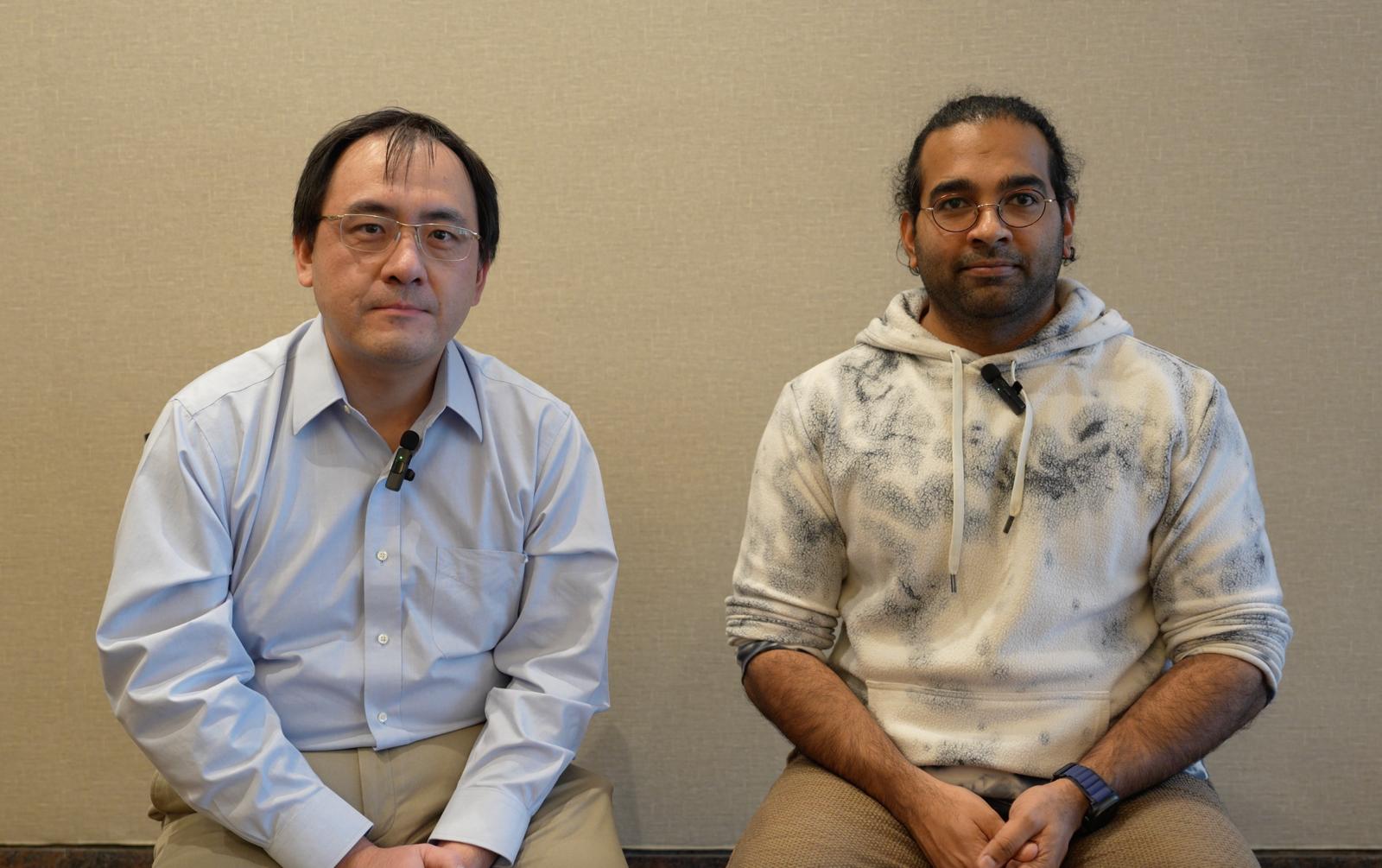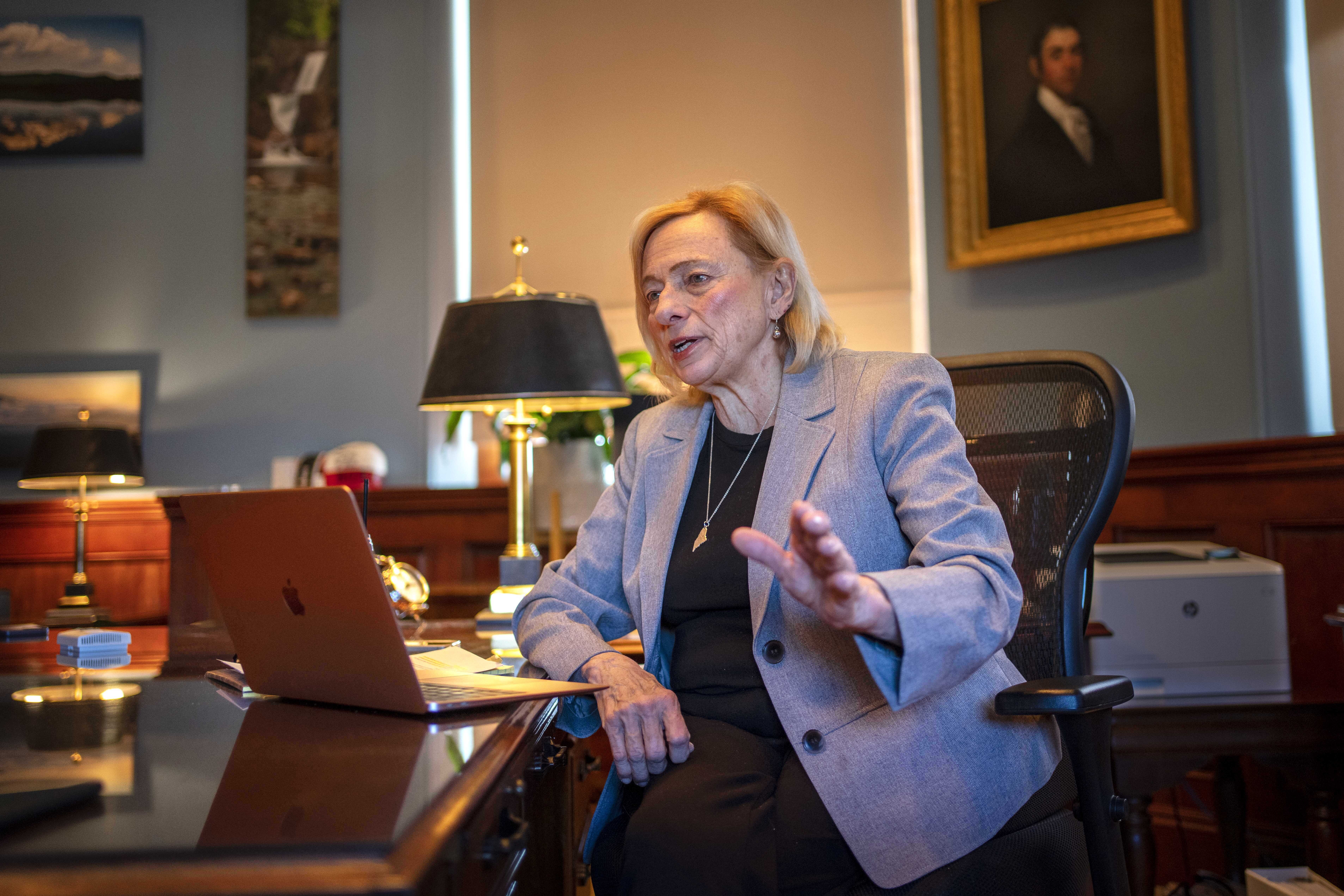

Biostate AI closes $12M to bring the Netflix model to molecular diagnostics
The company is reimagining the fragmented reality of molecular research by building the world’s largest RNA sequencing dataset. This dataset will train a general-purpose AI to understand—and eventually guide therapies for—all human diseases.

Houston, May 20, 2025 (GLOBE NEWSWIRE) -- Biostate AI, a leading innovator in artificial intelligence and RNA sequencing, announced the successful completion of a $12M Series A funding round, led by Accel. Additional investors included Gaingels, Mana Ventures, InfoEdge Ventures, and existing investors Matter Venture Partners, Vision Plus Capital, and Catapult Ventures. The company's seed round also attracted notable angel investors, including Dario Amodei (CEO, Anthropic), Mike Schnall-Levin (CTO, 10x Genomics), and Emily Leproust (CEO, Twist Bioscience).
The funds will support the company’s mission to unlock affordable and integrated precision medicine, starting with RNA sequencing (RNAseq) services for US-based molecular research.
The company’s immediate focus is revolutionizing RNAseq accessibility and developing clinically relevant predictive models. These technologies—and the requisite advances in data quality, integration of molecular data types, and rigorous clinical validation—serve as the foundations for Biostate’s long-term vision: truly personalized therapeutics.

Biostate AI founders: David Zhang and Ashwin Gopinath.
Founded by former professors and repeat entrepreneurs David Zhang and Ashwin Gopinath, Biostate was founded on the principle that the entire RNA transcriptome (rather than just small groups of RNA transcripts) is an underutilized real-time biomarker for human health. Until now, the comprehensive, simultaneous analysis of all RNA transcripts has been limited by cost and analytical barriers.
By eliminating such industry bottlenecks, the Biostate co-founders realized they could snowball a cheaper and more effective RNAseq operation into a one-stop shop for precision medicine.
Unlocking the power of RNAseq through GenAI
Currently, few molecular biology labs make the most of existing RNA datasets—or the power of machine learning to analyze them. That’s because conventional RNAseq suffers from three key limitations:
- It’s expensive, pricing most labs out of scaling their biotech research ambitions. Plus, institutions are facing increasing pressure to maximize scientific output with fewer resources, as research budgets tighten under the current administration.
- Dataset aggregation from across research sites involves several technological and logistical headaches. Often, individual labs’ work introduces noise into the data, called batch effects, which drown out the often subtle clinical signs researchers are combing through the data for.
- Specialized vendor siloing leads to communication breakdowns, higher costs, and slower workflows.
Biostate is solving these problems through a combination of bio-chemical innovations as well as Gen AI tools packaged in a self-sustaining business model:
- Cost: The company has invented and patented novel biomolecular technologies for turning tissue samples into RNAseq data at nearly an order of magnitude lower cost than traditional approaches, while being effective on both fresh and decades-old tissues. Their proprietary BIRT technology achieves this through an innovative multiplexing technique that allows simultaneous processing of multiple samples, while their PERD methodology separates signal from background noise without compromising quality. The result? Researchers can run 2-3 times more samples within existing budgets, dramatically expanding the scale of possible experiments.
- Data aggregation: Lower costs translate internally as well, enabling Biostate to run internal experiments at a fraction of what competitors spend. This economic advantage facilitates the collection of millions of consented, de-identified RNAseq profiles from across the globe, similar to how OpenAI trained their base models on the entirety of the internet. This massive dataset fuels their ability to train increasingly sophisticated generative AI models that can identify patterns across different disease states and tissue types.
- Standardization: Biostate's unified workflow and consistent methodology allow experiments conducted across different timepoints and batches to be standardized. This uniformity is crucial as it enables their AI to consistently learn the "grammar of biology" without the confounding batch effects that typically plague multi-site studies. The standardization process also allows them to extract meaningful signals from small, de-identified data cohorts with detailed clinical labels, which they use to fine-tune their foundation models for specific applications.
- Integration: The result is an integrated pipeline that transforms Biostate into a one-stop shop for molecular medicine. Their system converts biological samples into comprehensive transcriptome data that can be viewed holistically alongside their extensive datasets to generate actionable clinical insights—all under a single roof without requiring a web of specialized vendors. The company's stack even includes sophisticated generative AI tools like Quantaquill for turning analysis results into publication-ready manuscripts, further streamlining the research workflow.
“Just as ChatGPT transformed language understanding by learning from trillions of words, we're learning the molecular language of human disease from billions of RNA expressions from millions of samples,” said Ashwin Gopinath, co-founder and CTO of Biostate AI and a former MIT assistant professor. “We’re doing for molecular medicine what large language models did for text—scaling the raw data so the algorithms can finally shine.”
Translating—then eliminating—human disease
A personal origin story: Gopinath’s work is deeply influenced by his wife’s battle with leukemia. His background in engineering led him to dig into how such devastating diseases can be predicted.
Paired with Zhang’s background in DNA research, the two discovered that RNA was an untapped middle ground of human health insights. Plus, they planned to build something that would last, hence the Netflix-inspired self-sustaining business model fueled by the company’s focus on home-grown AI.
AI bridges molecular data and patient interventions: While LLMs like ChatGPT learn patterns from text, Biostate's AI models identify expression signatures across thousands of genes, which all correlate with specific disease states and treatment responses. This enables its models to have detect subtle molecular changes that precede clinical symptoms by weeks, months, or even years, enabling earlier intervention.
“Rather than solve the diagnostics and therapeutics as separate, siloed problems for each disease, we believe that the modern and future AI can be general purpose to understand and help cure every disease,” said David Zhang, co-founder and CEO of Biostate AI, and former Associate Professor of Bioengineering at Rice University. “Every diagnostic I’ve built was about moving the answer closer to the patient. Biostate takes the biggest leap yet by making the whole transcriptome affordable.”
The AI developed from this wealth of RNAseq data will better inform clinicians of optimal treatment decisions. Biostate has already achieved internal proof-of-concept success for predicting disease recurrence in human leukemia patients. In the near future, the company plans to expand its collaborations with clinical partners in oncology, autoimmune disease, and cardiovascular disease.
Shekhar Kirani, Partner at Accel, said: “Biostate is building the foundation model for molecular medicine—by pairing deep wet lab innovation with AI to unlock RNAseq at unprecedented scale and affordability. Just as OpenAI used massive datasets to decode language, Biostate is decoding the molecular signals that govern human health. We believe David, Ashwin, and the team are laying the groundwork for a new era of diagnostics and therapeutics, and we’re thrilled to partner with them on this journey.”
An expanding client base: The firm has raised over $20 million to date and is growing its paying institutional customer base through a network of 100+ pilot projects across diverse disease indications, including leukemia (Cornell) and multiple sclerosis (Accelerated Cure Project).
As a result, since commercializing its offering just two quarters ago, Biostate has run RNAseq on over 10,000 samples from over 150 collaborators and customers from leading institutions. The startup has also secured agreements to process several hundred thousand unlabeled samples annually, rapidly accelerating its dataset growth and powering AI development.
Ends
Media images can be found here.
About Biostate AI
Biostate AI is a startup building generative AI that predicts the evolution of human disease and drug response based on RNA sequencing data. Its patented wetlab technologies, including BIRT, allow affordable and scalable collection of massive amounts of transcriptomic and genomic data. With sites in Houston, TX, Palo Alto, CA, Bangalore, India, and Shanghai, China, Biostate AI is a global company with collaborations with top hospitals, academic researchers, and biotech/biopharma companies. Biostate AI was founded by serial entrepreneurs and former professors David Zhang (Rice U.) and Ashwin Gopinath (MIT) and is backed by top investors and experts including Accel, Dario Amodei (Anthropic), Emily Leproust (Twist Biosciences), and Mike Schnall-Levin (10X Genomics).
About Accel
Accel is a global venture capital firm that is the first partner to exceptional teams everywhere, from inception through all phases of private company growth. The firm helps ambitious entrepreneurs build iconic global businesses. For more information, visit https://www.accel.com/

For further information, please contact the Biostate AI via Ashwin Gopinath on ashwin.gopinath@biostate.ai
NOTE: This content is not written by or endorsed by "WJZY", its advertisers, or Nexstar Media Inc.










 CLEAR®
CLEAR®